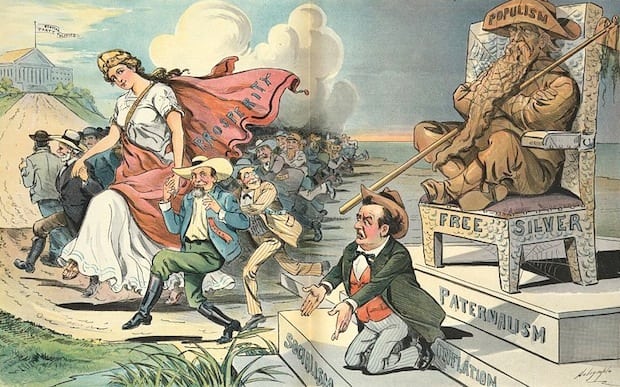What is the big deal about populism? We commonly hear the expression these days, and usually not as a compliment.
Populism means “a believer in the rights, wisdom, or virtues of the common people” (Merriam-Webster); “A political philosophy supporting the rights and power of the people in their struggle against the privileged elite” (American Heritage); “political program or movement that champions, or claims to champion, the common person, usually by favourable contrast with a real or perceived elite or establishment.” (Encyclopedia Britannica). Definitions seem pretty consistent: the interests of the people over those of the elite.
Donald Trump is a populist, in promising to “drain the swamp.” So is Pierre Poilievre, with his appeal to “the common sense of the common people.” So was Mike Pence, at the recent Republican candidates’ debate, in repeating the slogan “What we need is a government as good as the American people.” John Diefenbaker was a populist: “Everyone is against me except the people.” RFK Jr. is a populist. Jefferson was a populist. The NDP too used to at least claim to be populist, fighting for the “working man” against the “special interests.”
So what is wrong with that? This is simply democracy: the idea that there must be some check on the power of the elite. The opposite of populism would be autocracy, or aristocracy. I think we all rejected that in the American and French revolutions.
To be fair, however, Adolf Hitler was also a populist, appealing to the “volk” against the cosmopolitan elite, which he then identified with the Jews. Lenin, Stalin, Mao, Castro, Chavez, Robespierre were all nominally populists.
My conclusion: like any obvious good, populism will inevitably be hijacked to conceal evil. Just as the smartest way to hide if you are a thoroughly bad sort is under a cassock.
Buyer beware: consider such movements case by case. And be alert too that slanders will be spread about them by any elite.













No comments:
Post a Comment